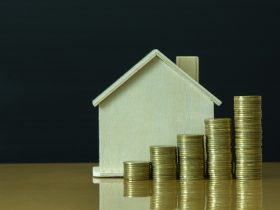Residential property prices and transactions have slumped as social distancing restrictions during Hong Kong’s worst COVID-19 outbreak kept many buyers at bay
Hong Kong’s virus-hit property market is unlikely to rebound quickly, as the financial hub grapples with a weak economy and while rate hikes and travel restrictions dent demand, analysts say.
Residential property prices and transactions have slumped as social distancing restrictions during Hong Kong’s worst COVID-19 outbreak kept many buyers at bay.
Mandatory hotel quarantines and other travel restrictions were also barrier for mainland Chinese investors — a key driver of luxury property sales.
The world’s most expensive property market bounced back quickly after previous waves of the virus took a bite out of demand, but any recovery this time around is likely to be slower.
Goldman Sachs, meanwhile, is even less optimistic, saying city home prices will likely fall 20% between 2022 and 2025, owing to weak demand.
Global uncertainty stoked by the Ukraine crisis and a shaky world economy are weighing on enthusiasm, while higher lending rates are also playing a role after the Hong Kong Monetary Authority, the city’s de facto central bank, raised its base lending rate this month, following the U.S. Federal Reserve.
Investment bank UBS has said that for every 1 percentage point rise in mortgage rates there will be a 10% decline in property prices, ‘assuming affordability remains unchanged.’
Hong Kong has enjoyed low interest rates for the past 20 years, with home prices rising by 449% since 2003, according to the Centaline Price Index. Commercial mortgage rates are at roughly 2%.
Investors are cautious at this moment and waiting for the right timing to enter the market, said Hannah Jeong, head of valuation and advisory services at Colliers Hong Kong.
The government lowered its economic forecast to 1% to 2% growth for the year after a worse-than-expected 4% contraction in gross domestic product in the first quarter. Hong Kong’s unemployment rate hit 5.4% for the three months ending April, the highest level in a year.
This week, Hong Kong’s Financial Secretary Paul Chan warned of the economic impact on the city and the rest of the world, amid strained U.S.-China relations, rising inflation and interest rate hikes.
Real estate sales volume has nose-dived this year, with Hong Kong’s March figures down by more than half from a year ago to 2,869 transactions, although there was an uptick in April, driven by demand for new developments, while second-hand home prices were off 3.2% from December through March, according to official data.
Some homeowners are selling their properties at heavily discounted prices, analysts say, amid an exodus of residents stoked by the city’s strict virus rules and a Beijing-imposed national security law.







Leave a Reply